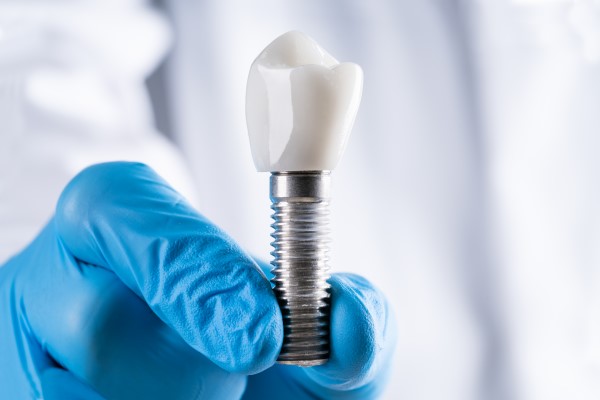4 Aftercare Tips for Implant Crowns

Implant crowns are a long-term solution to tooth loss that are easy to care for, but the process of receiving the new and beautiful replacement teeth is not always pleasant. To make the aftercare process following the placement procedure go as smoothly as possible, it is helpful to learn some aftercare tips from a dental professional.
4 Ways to care for your new implant crowns
Properly caring for implants after placement is essential to minimizing the risk of oral infection and keeping any discomfort that exists at a tolerable level until a full recovery is made. The following are four effective tips on how to care for your oral health after the placement of the implants.
1. Keep your mouth clean
Perhaps the most important care tip following implant crown placement is to keep the mouth as clean as possible. There is likely to be a fair amount of swelling and discomfort that exists, and there may even be some minor bleeding as well. Patients can keep the discomfort from becoming intolerable and prevent oral health complications such as an infection from developing by keeping the mouth clean through a good daily oral care routine. The routine should include brushing several times a day and using mouthwash as directed by the dental professional.
2. Eat a soft diet and drink water
One of the biggest changes to prepare for after implant placement is the patient’s diet. Many foods will be off-limits for the first few weeks, and it is important to keep chewing at a minimal level. To do so, stick primarily to soft foods such as oatmeal, yogurt, scrambled eggs and soup. It is also helpful to drink water throughout each day to wash away any excess bacteria that develop in the mouth.
3. Check for complications
It is also important to check for any signs of complications during the recovery process and to notify your dental professional if any issues develop to ensure the problem does not worsen or linger for longer than what is necessary. Signs to check for include excessive swelling, moderate to severe bleeding, an intolerable amount of pain and a dental implant that feels loose. While moderate discomfort and other symptoms are to be expected, anything severe might be a sign of a more serious issue such as an implant failure or an oral infection.
4. Make all scheduled dental visits
Your dental professional overseeing the implant crowns treatment process is likely to schedule follow-up visits to ensure the recovery process goes smoothly and that there are not any complications that the patient could not detect. It is essential to make all scheduled visits as some might be necessary for a full and speedy recovery. The longer an issue exists, the more serious it is likely to become, and dental professionals can quickly spot and fix any issues.
Find out more about implant crowns
Get in touch with our office today to learn more about implant crown treatment and to schedule an initial consultation visit. We help our patients through the entire process, including the aftercare process following implant placement.
Are you considering implant crowns in the Chamblee area? Get more information at https://chambleedental.com or call us at (770) 238-4316.
Check out what others are saying about our dental services on Yelp: Implant Dentist in Chamblee, GA.
Recent Posts
Dental implants provide an alternative to dentures and dental bridges when it comes to replacing missing teeth. The process involves fusing titanium posts, which act as tooth roots, to the jaw and placing an artificial tooth to the abutment that is attached to the post. The implants hold the artificial teeth in place and also…
Root canal infections occur when bacteria reach the central canals of your teeth due to exposure from taking a blow to the mouth or tooth decay. A root canal is a procedure performed for the purpose of repairing or salvaging a seriously decayed tooth or a tooth that has been severely infected. During a root…
Dental implants are highly recommended when it comes to replacing missing teeth. They are the only oral prosthetics that replace teeth and their roots. Other prosthetics like dentures and bridges simply replace the visible part of the tooth.Implants are surgically placed in the patient’s jaw and left there to fuse with surrounding bone tissues. The…
Dealing with problematic teeth is vital to your current and future oral health, and sometimes this includes tooth extraction. Various dental issues can necessitate an extraction, but it is also important to note that not replacing the extracted tooth or teeth can harm your dental health. However, there are several methods and options to consider…


